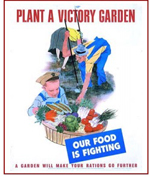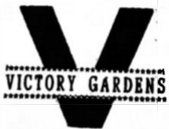
Vindicator-Republican, Estherville, Emmet County, Iowa, Tuesday, April 7, 1942
Let’s plan this year’s garden to produce over the longest period possible. This means getting the early garden planted EARLY and following with suitable crops that can be used right up to frost and stored after that. This practice will, of course, decrease the amount of vegetables to be canned or stored.
Seeds that should go into the ground as soon as it can be worked: beets, carrots, cabbage, lettuce, parsnips, peas, radish, swiss chard, onion sets and potatoes.
Successive planting at intervals of two weeks are advisable for beets, carrots, lettuce and radishes.
You can grow your own tomato and cabbage plants by seeding in hills and the garden. These directly seeded plants will be as productive as transplanted plants in most seasons. At least 10 or 12 tomato seeds and 5 or 6 cabbage seeds should be sown early in each hill. Weed out the extras later on.
If all the crops to be harvested early are planted together, the ground after their removal may be used for late summer and fall crops. In the experimental gardens at Ames more green and wax beans have been secured from the fall-sown crop (July 15-25) than from the same varieties sown in early May. Chinese cabbage has produced better heads when seed was field sown about July 25, than when grown as a spring crop.
It will save you time, money and vegetables if you plan a yearly rotation of garden vegetables. Serious losses will be prevented from insects which over-winter in and near the garden. Since many farm gardens will be out in the field, carry-over of insects will not be as much of a problem as it will be with city gardeners, however.
Never plant radishes on ground that was in cabbage the year before and don’t follow cabbage with cabbage. Wire worms are long lived insects; if they were present in the garden last year, they are probably still there and will attack potatoes and sweet corn especially. The Colorado potato beetle also over-winters in the old patches.
Two new pamphlets are available without charge through your county agent or through the Extension Service at Ames—“Victory Home Food Supply” (Pamphlet 23) and “Victory Vegetable Garden,” (Bulletin P40).
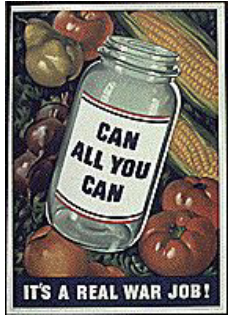 |
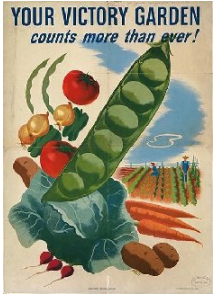 |
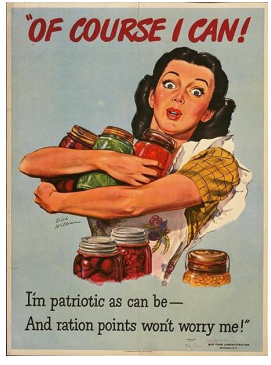 |
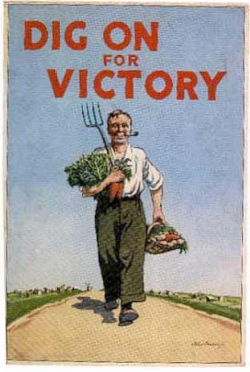 |
Victory Garden Posters
![]()
